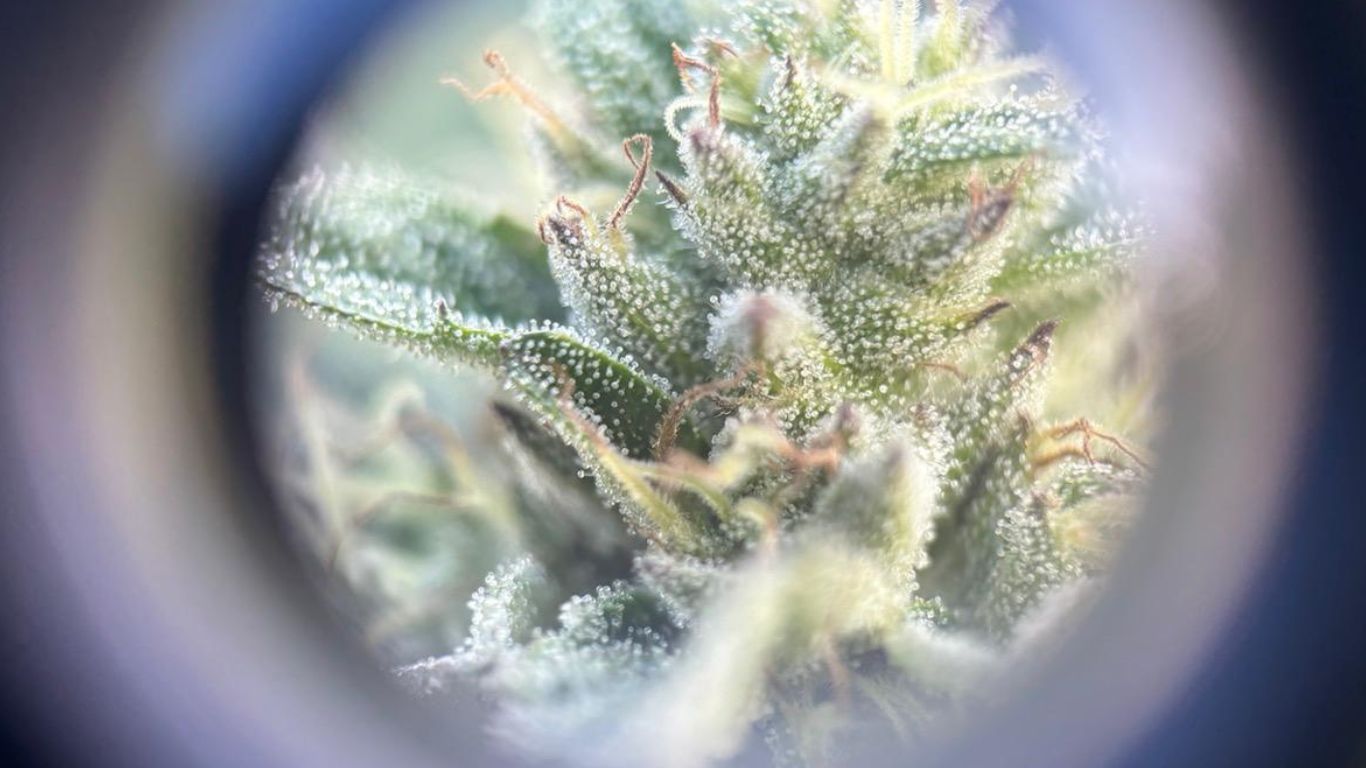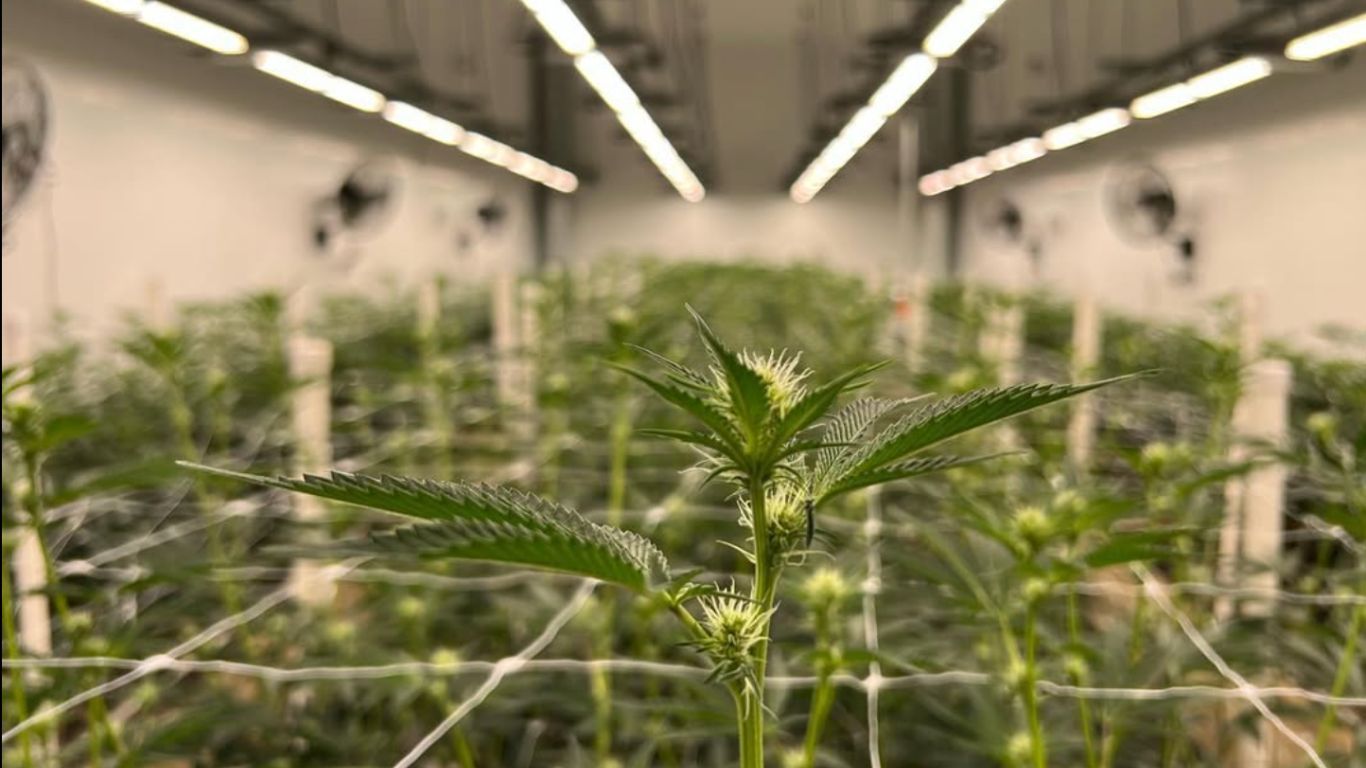
| COMPANY: | Sweet Valley Cannabis |
| LICENSE TYPE: | Standard Cultivator (seeking amendment to add a processing/sales licence) |
| APPROACH: | Starting material for commercial growers, and consumer market |
| TIMELINE: | ~3 years + 4 months (applied: September 2017; Licensed: January 2020) |
| COST: | n/a |
| FACILITY: | ~4,000 sq foot indoor facility |
Jeff Thorne, VP of sales at Sweet Valley Cannabis in Summerland, BC has been growing cannabis in British Columbia for almost two decades. First, under Health Canada’s former medical access program and now as a licensed cultivator regulated by the Cannabis Act.
Thorne started the company with his wife Erin Lang a few years ago as a way to transition his own facility into the commercially licensed industry. Now he wants to help other growers like him find a way to become legal and succeed in this new industry.
Although licensed as a standard cultivator, Sweet Valley Cannabis is currently focused on operating as a nursery to supply clones and eventually seeds for both the B2B and B2C markets.
Helping newer license holders
Their goal is to help newer license holders, especially micro cultivators, to source quality genetics so that they can dedicate their limited cultivation space to high quality flowers. Sweet Valley Cannabis also has a processing amendment application in, and intends to be able to provide the opportunity to process the end product from those cultivators so they can make their way to the retail market.
We’ve been making selections, collecting and breeding for many years so we have a pretty unique suite of disease-resistant, high-yielding strains.
With 55,000 seeds, 33 mother plants and about 1200 varieties, they have a robust genetic bank and they are excited to begin sharing. Some of the first strains they want to focus releasing to licence holders include God Bud OG, Cookies & Cream, Lemon Sorbet, GMO, MAC, Apricot Kush, Chimp Mints, Platinum Candyland, Green Crack, Black Mamba.
“Nursery is our focus because we see it as the way we can positively impact the industry in the near term. We’ve been making selections, collecting and breeding for many years so we have a pretty unique suite of disease-resistant, high-yielding strains. Some are outdoor specific, some specific for greenhouse, some for indoors, hopefully something for just about anybody in BC.”
Deep roots in the BC cannabis community
After many years working in BC’s wine industry in the 1990s, Thorne found himself in love with all aspects of the process, from the agricultural side to taking a finished product to market. He brought this passion with him when he began helping a designated grower under the MMAR with his operation, before eventually growing himself for four different patients in the same location his current facility is in.
Through this time, Thorne says he and his partners had an opportunity to gain knowledge and experience growing and breeding plants that worked well in their region and provided the types of end products that their patients wanted.
Thorne says he began ‘spending more than he hopes his wife knew’ gathering cannabis seeds over a span of many years. By consistently learning and developing new traits he was able to amass a collection of thousands of seeds – through acquisition and breeding – that he was able to migrate in under his new licence. Thorn is excited to begin sharing with other growers, both commercial and home growers, and especially with micro licence holders.
They recently completed their first sale in early March 2020, says Thorne.
Licensing timeline
The 39 year old cannabis enthusiast and father of two says he originally applied to get a commercial licence under the MMPR in 2014 but eventually rescinded his application when there was no movement after about a year. He continued to operate under the MMAR and the injunction associated with it. He then reapplied as Sweet Valley Cannabis in October 2017 and they received their licence in January 2020.
Our focus is getting our premium, elite genetics placed in some of these larger greenhouses, as well as the growing micro community.
Challenges at the local level
With regards to licensing, although there are challenges with the federal regulations in terms of cost of adhering to as well as interpreting them, he says some of the bigger challenges were at the local level.
“Just to get municipal permits on agricultural land was very difficult, just to get our community behind it,” he says. “Last summer we were the only cannabis start up on ag land that had community support. So we had a lot of advantages to the first movers. Our focus is getting our premium, elite genetics placed in some of these larger greenhouses, as well as the growing micro community.”
Our model is simple
“Our model is simple. We want to support craft growers. There are so many micros in various stages of development, with limited bandwidth, they don’t want to grow mothers. We come in with our premium genetics, we offer some unique genetics others out there don’t have, and we think we can provide them some real support”
The cost of branding and packaging is significant, so to get a handful of craft producers within our periphery is the model for us: Support them, get them good genetics, help them with compliance, help them deal with distribution, so it’s a different vision that just selling clones to some of the big producers to be turned into distillate.
“The ultimate goal is to get a handful of micros the same products so that we can satisfy a larger need for branded products in the marketplace. The cost of branding and packaging is significant, so to get a handful of craft producers within our periphery is the model for us: Support them, get them good genetics, help them with compliance, help them deal with distribution, so it’s a different vision that just selling clones to some of the big producers to be turned into distillate.”
Understanding the micro realities
The real challenges for these micros, Thorne says, will be understanding the realities of the wholesale and consumer market.
The opportunity to hold on to more of the revenue can be huge for small growers.
“The reality is right now the only things that are really selling are over 20% THC, and they need to be under $10 a gram by the time they hit the Province. So if you’re a micro (cultivator) and you’re bulk-packaging this stuff, if you’re getting anything over $3 a gram, then you are doing excellent, because by the time it gets jarred and weighed, through QA and testing, and everything else, you’re approaching that $10 mark.”
“I think in the near term, $4-5 for a high-end craft flower that tests over 20%, is hand trimmed, has amazing bag appeal – I think that’s accessible. But if it’s not of the highest caliber, then I see it long term moving towards a commodity market where the kind of products coming from the big greenhouses are getting under $1 a gram. But even at about $2.50 a gram, if you’re not able to make money, you really need to look at your cultivation practices, your genetics and your growers.”
As for the consumer market, Thorne says he sees a lot of potential for the market once the province allows either direct sales or drop shipping, with a lot of potential for the ‘farm gate’ direct sales to make micros and even businesses like his much more economically viable.
“Personally, we’re in a high tourist area, we have thousands of tourists in our region every summer. They’re already driving by, they’re already buying cannabis from stores, we just want to sell to them, too. And for the financial ability of a micro, I think it will be an important part of them succeeding. The opportunity to hold on to more of the revenue can be huge for small growers.”
You need at least 12 months cash on hand to run your facility, and even after that you’re living crop to crop.
Prepare for financial realities
Another piece he hopes more new licence holders truly understand, is being prepared to take a while to begin making revenue to even cover operating costs, much less the initial investment.
“You need at least 12 months cash on hand to run your facility, and even after that you’re living crop to crop,” he warns. “This is something that the legacy market guys don’t fully understand, because a lot of what they’ve done in the past has been like, a single crop pays off their whole facility, these are not the market conditions today.”
“That’s not the reality of the legal market. The tax structure can be significant, the terms with the distributors is long, other agencies besides Health Canada like the CRA, which is a piece people often forget about. A lot of these legacy growers don’t understand all this, so they need support from licence holders like ourselves. We have a QA department, we have an accountant, we have systems in place already that they can benefit from, and we have more flexibility than some of the bigger players because we’re a lean, small, privately held LP.”











